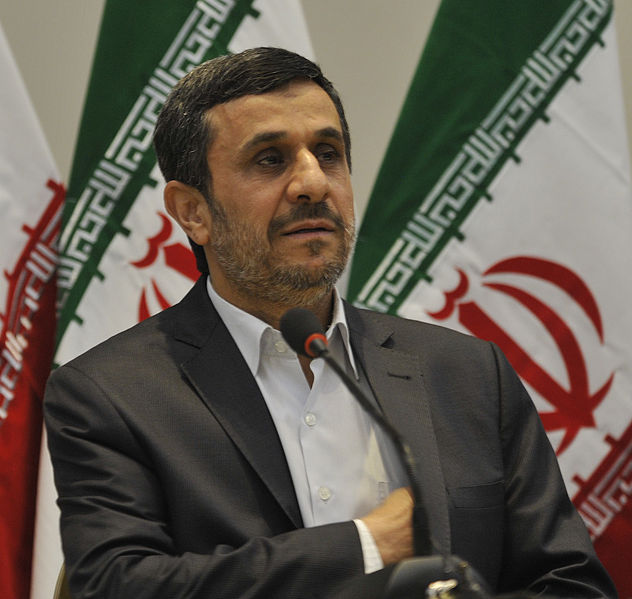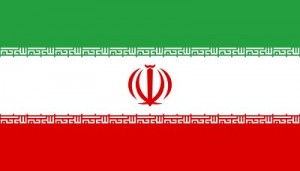World news
Nuclear Iran? Prepare

Editor’s Note: two essays follow, from 2008 by Paul Eidelberg and 2009 by Amb. John Bolton. Both treat the existential danger the Islamic Republic of Iran poses to the United States of America and especially to the Republic of Israel. They raise questions most people involved in the “nuclear Iran” debate seem to have forgotten.
Iran is our most dangerous enemy
(by Paul Eidelberg, 9 May 2008)
Iran has been at war with the United States and Israel ever since the Khomeini-inspired Iranian Revolution of 1979. This is, or may become, the most far-reaching revolution in human history. Iran is not only the epicenter of international terrorism. Iran’s ultimate goal is to restore the Persian Empire and spread Shiite Islam throughout the world. This is not fantasy….
Iran is gaining decisive influence on Syria and Iraq. Iran’s proxy, Hezbollah, virtually rules Lebanon. [Hamas is another proxy of Iran, has access to the Sinai where it could threaten Egypt].
If this was not enough, Iran controls the world’s spigot of oil flowing through the Persian Gulf. This nation of 70 million people can wreck the world’s economy. With control of the vast oil resources of the Persian Gulf, a nuclear-armed Iran, with its long-range Silkworm ballistic missiles, would cow an already craven Europe, without which the American economy would utterly collapse, period.
Hence, the question arises: “Will the U.S. or will Israel launch a preemptive attack on Iran, the engine of Islamic imperialism?” At stake is the survival of Western civilization. [Iran’s] maledictions, “death to America” and “death to Israel” speak of a world without Christianity and Judaism.
The U.S. National Intelligence Estimate of December 2007 reported that Iran had ceased its nuclear development program in 2003. Former UN Ambassador John Bolton wrote an excoriating critique of the NIE report in The Washington Post (December 7, 2007). He warned that “the NIE opens the way for Iran to achieve its military nuclear ambitions in an essentially unmolested fashion, to the detriment of us all” (my emphasis). This is precisely why Mr. Bolton wrote an op-ed piece in The Wall Street Journal virtually encouraging Israel to launch a pre-emptive strike against Iran. He boldly asserted that the US should support Israel before, during, and after such a strike – should it take place. [Hardly to be expected with Obama in the White House.]
Crunch time for Israel and Iran
(By Ambassador John Bolton, 28 July 2009)
It’s routine for senior American officials to descend on Jerusalem. Most important was a visit of [former] Defense Secretary Robert Gates. His central objective was to dissuade Israel from carrying out military strikes against Iran’s nuclear weapons facilities. Under the guise of counseling “patience,” Mr. Gates conveyed President Barack Obama’s emphatic thumbs down on military force.
[Meanwhile], Iran’s progress with nuclear weapons and air defenses means that Israel’s military option is declining over time. Worse, Mr. Obama has no new strategic thinking on Iran. He vaguely promises to offer Tehran the carrot of diplomacy followed by an empty threat of sanctions down the road if Iran does not comply with the U.S.’s requests. This is precisely the European Union’s approach, which has failed for over six years.
Unlike Obama, Israel sees the diplomatic and military situation concerning Iran in a very inauspicious light. Israel fears that the Obama administration, once ensnared in negotiations, will find it very hard to extricate itself. The Israelis are probably right. To prove the success of his “open hand” or “outreach” policy, Mr. Obama will declare victory for “diplomacy” even if it means little to no gains on Iran’s nuclear program.
Under the worst-case scenario, Iran will continue improving its nuclear facilities and Mr. Obama will become the first U.S. president to tie the issue of Iran’s nuclear capabilities into negotiations about Israel’s nuclear capabilities.
Relations between the U.S. and Israel are more strained now than at any time since the 1956 Suez Canal crisis. Obama’s message to Israel (via Gates) not to attack Iran, and the U.S. pressure he brought to bear, highlight the weight of Israel’s lonely burden.
Striking Iran’s nuclear program will not be precipitous or poorly thought out. Israel’s attack, if it happens, will have followed enormously difficult deliberation over terrible imponderables, and years of patiently waiting on innumerable failed diplomatic efforts by the United States.
Absent Israeli action, prepare for a nuclear Iran. ◙
-

 Civilization4 days ago
Civilization4 days agoWhy Europe Shouldn’t Be Upset at Trump’s Venezuelan Actions
-

 Executive5 days ago
Executive5 days agoHow Relaxed COVID-Era Rules Fueled Minnesota’s Biggest Scam
-

 Christianity Today4 days ago
Christianity Today4 days agoSurprising Revival: Gen Z Men & Highly Educated Lead Return to Religion
-

 Civilization5 days ago
Civilization5 days agoThe End of Purple States and Competitive Districts
-

 Executive4 days ago
Executive4 days agoWaste of the Day: Can You Hear Me Now?
-

 Civilization1 day ago
Civilization1 day agoTariffs, the Supreme Court, and the Andrew Jackson Gambit
-

 Civilization2 days ago
Civilization2 days agoWhy Europe’s Institutional Status Quo is Now a Security Risk
-

 Civilization3 days ago
Civilization3 days agoDeporting Censorship: US Targets UK Government Ally Over Free Speech












This administration is inept and dangerous to say the least
Cathy Scholz liked this on Facebook.
ROFLMAO!!!!!!!!!!!!!!!!!!!!!!!!!!!!!!!!!!!!!!! the ONLY danger to the u.s. is from ISRAHELL! wake up. geez
hello???? what planet do you live on??
i live on earth,where do you live? la la land??
the demonization of iran comes from israhell and is unrelenting. ask why. why do they harp on a country that has NOT ATTACKED anyone in over 200 yrs?? ask israhell to open dimona up to iaea inspections! who has over 300 undeclared nukes?? and is not a member of the NNPT! oh,right that would be israhell.
ignorance is bliss and some are just living in a dream .They do not have the sense or desire for truth that must exist in order for them to figure anything out .I would ask what planet they are living on but I really do not care .
i agree holly,totally! they are so gullible they make gullible a common word.
RAVE !
thank you ma’m!LOL
Gerald Crowe liked this on Facebook.